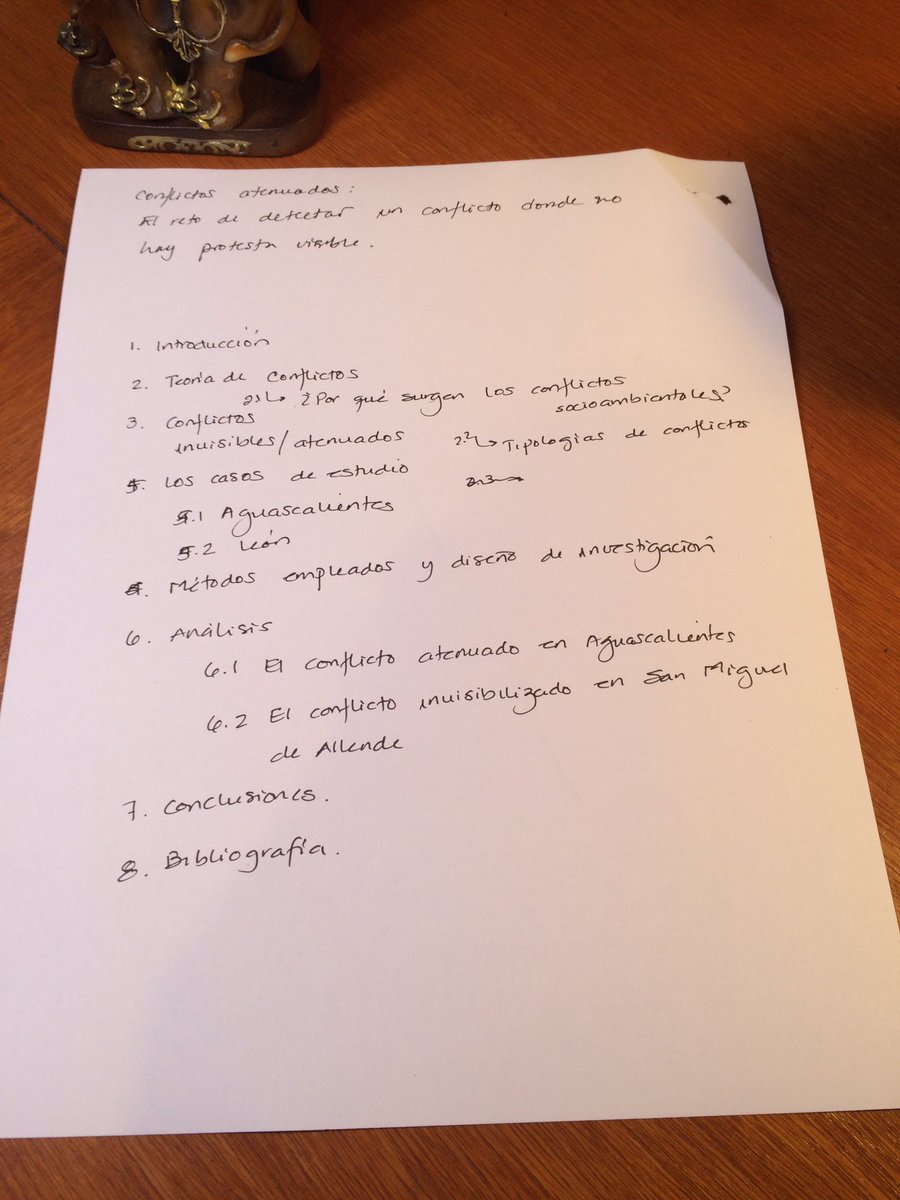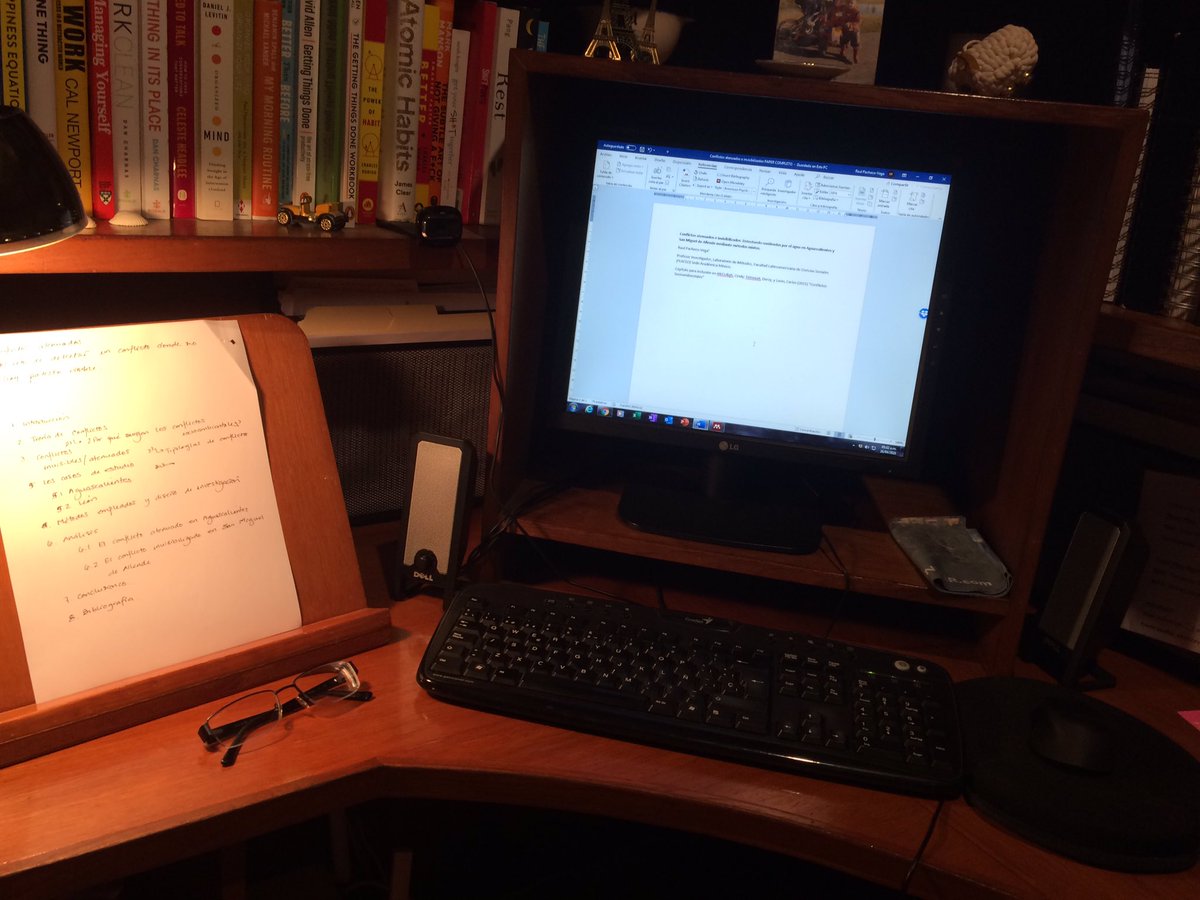
Good morning and happy Monday! I need to write, finish and submit a book chapter (last year commitment, incredibly supportive research group, I can’t decline this late in the game). Deadline is Friday.
The challenge is #1500wordsaday until Friday and then take full weekend off.
The challenge is #1500wordsaday until Friday and then take full weekend off.
The first step (for me) is to write an Initial Outline raulpacheco.org/2020/11/writin…
And then map out the writing strategy, start filling up Topic Sentences and Reflective Questions so I can get to the Detailed Outline
And then map out the writing strategy, start filling up Topic Sentences and Reflective Questions so I can get to the Detailed Outline
Once I create a Detailed Outline (helped by Topic Sentences and Reflective Questions) I move on to breaking down the work into Memorandums and expanding the Detailed Outline to make it as "full" as possible.
raulpacheco.org/2020/11/expand…
raulpacheco.org/2020/11/expand…
If you're writing a book chapter, you can use this blog post that explains the process in a more synthetic way
raulpacheco.org/2018/07/how-to…
And if you need guidance on how to write the COMPONENTS of a research paper, this page hosts several of my blog posts raulpacheco.org/resources/acad…
raulpacheco.org/2018/07/how-to…
And if you need guidance on how to write the COMPONENTS of a research paper, this page hosts several of my blog posts raulpacheco.org/resources/acad…
1346 words, so far. #1500WordsPerDay
TO NOTE: I have spent YEARS thinking about water conflicts. I have all fieldwork notes, analyses, etc.
Writing this chapter should be easy because I've spent years thinking these case studies through. Not all writing goes like this.
TO NOTE: I have spent YEARS thinking about water conflicts. I have all fieldwork notes, analyses, etc.
Writing this chapter should be easy because I've spent years thinking these case studies through. Not all writing goes like this.
This important to note: the weeks, months and years you spend ruminating, thinking, reading, drafting, scribbling, pondering, all that time is WRITING TIME, it's research!
Don't think that if I can crank a chapter out in a week it's totally new. It's been simmering in my head.
Don't think that if I can crank a chapter out in a week it's totally new. It's been simmering in my head.
1,873 words. As you can see, I use Reflective Questions as anchoring pieces for the beginning of the paragraph.
(yes I understand this book chapter is in Spanish but you get the gist).
(yes I understand this book chapter is in Spanish but you get the gist).

• • •
Missing some Tweet in this thread? You can try to
force a refresh













